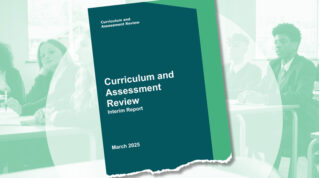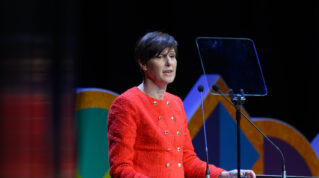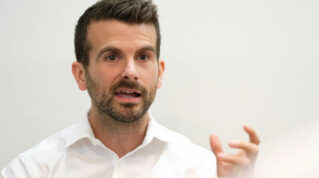Like many education leaders, we are concerned that state schools are being pushed towards becoming exam factories, concentrating their energies on securing high attainment and progress and thus giving too little attention to the overall development of the child and their character. We also believe the obsession with outcomes has often been at the cost of innovative learning and creative teaching.
The purpose of school is a big question that our trust thinks is important to discuss, not just with staff but perhaps more importantly with parents and pupils. Avanti exists to help each person become a well-rounded human being through intellectual, moral and spiritual growth, and so make the world a better place.
We make this point as leaders of a high-performing multi-academy trust (MAT) whose schools achieve outcomes that rank in the top 5 per cent of all state schools nationally. We believe passionately that the pursuit of education excellence is a vital part of school improvement, but it is not enough for young people to emerge from our schools with only academic achievement. This is only a part of the whole-school journey. High attainment can never be more than part of the story of the responsibility of schools to children, to parents and to the wider community.
We strongly believe that our schools should focus as much on character-building and spiritual insight as they do on academic attainment, not as an alternative to it but as an essential adjunct. Our over-arching approach to education is captured in our “Avanti Way”, which outlines our philosophy of education and makes the case for children having a sound grasp of moral virtues such as empathy, integrity and courage.
Our own experience is that such an approach will also lead to improvements in the classroom. But this level of understanding doesn’t just happen; it needs to be nurtured and encouraged.
Just because it is difficult or less tangible does not mean that we shouldn’t try
We do not underestimate the challenge. It is not an easy thing to develop character or uncover spiritual insight. But just because it is difficult, or because it is less tangible, or because it can be a nightmare to try and measure, does not mean that we shouldn’t try. We cannot abdicate the school’s role in this crucial aspect of human endeavour and growth.
Conversely, it is precisely because it is so challenging that schools are so well-placed to support this holistic dimension to education. Part of the answer to character development is modelling, and where better for young people to find adults they can look up to than here?
This is why we spend a lot of time encouraging and facilitating all adults within our MAT to take up the same challenge that we pose to our pupils of developing character and uncovering spiritual insight. We cannot expect adults to guide pupils on a path that they themselves are unwilling to tread.
To that end, we offer residential experiences to all staff that focus on wellbeing and include practical exercises and seminars based on character formation and spiritual insight. Stemming from these, conversation groups proved so popular with pupils and adults alike that we are beginning to train facilitators so that every pupil and every adult has this experience at least once a week.
We are also investing in our yoga and meditation curriculum and a new personal development curriculum, both in collaboration with experts. In addition, we have started implementing a 360deg feedback model matched against the trust’s core principles with our executive team, which we plan to roll out for all senior leaders. Meanwhile, our new pastoral system will support every child and adult in our schools proactively, not just reactively.
At a time when schools are increasingly becoming central hubs for their communities, our focus on purpose and character is delivering innovative solutions to wellbeing and cohesion within and without the school gates.
That’s something academic attainment alone could never deliver, and it is vital in these challenging times.

















Dear Nitesh, Dear Mike,
Some 30 years ago, I was invited by Satish Kumar, editor of Resurgence magazine, to take over as head of the Small School in Hartland in Devon.
It was a wonderfully innovative and inspiring educational experience for the whole school community and, I feel, gave the young people a truly holistic education, enabling them to contribute usefully to the world they moved out into.
I then went on to take over as head of a sister school in Bath.
Now, 25 years on, as you say, it is depressing to see just how narrow and assessment obsessive education has become, to the exclusion of the very attributes we should be preparing our charges for: an ability to question all that the media imposes, an ability to be original and innovative, and an ability to step out of the confines of provincial prejudices and perceive the essential global perspective.